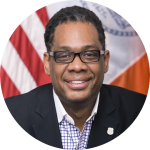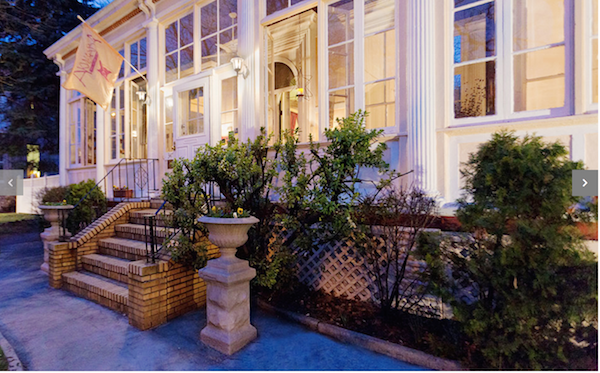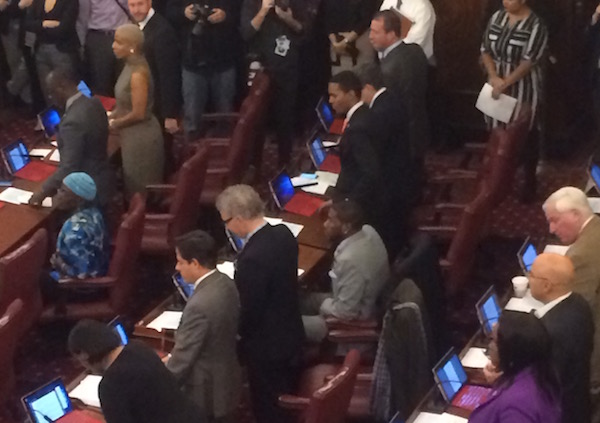Brooklyn Borough President Eric L. Adams (D) and City Council Members Jumaane D. Williams (D-Flatbush, East Flatbush, Midwood) and Council Member Robert Cornegy, Jr. (D-Bedford-Stuyvesant, Northern Crown Heights) yesterday teamed up to reintroduce legislation that would increase the number of boarders, roomers or lodgers permitted in a private dwelling, such as for Bed and Breakfasts.
The bill, which was initially introduced during the spring of 2017, can now be considered by the City Council in this term.



The legislation, now designated as Intro 719, was introduced at the request of Adams. The current Housing and Maintenance Code permits only two boarders in any private dwelling. The legislation would expand to a maximum of four. It would provide relief and protections to entrepreneurs operating bed and breakfast operations within their homes.
The bill comes as the city council is ramping up their efforts to regulate shared economy services such as AirBnB, which some argue flout regulations and provide unsafe spaces while occupying property which could be used for affordable housing. Others argue that such services provide an economic boost to local neighborhoods through increased tourism, as well as helping some pay their mortgages and rent.
The legislation aims at separating what the bad actors in the shared economy sector from those who are using their platform and property in good faith and are not the intended targets of investigatory enforcement.
“Legitimate bed-and-breakfast owners deserve the legal framework to operate their small businesses.” said Adams. “I thank Council Members Cornegy and Williams for working with me on this sensible legislation that will allow these taxpaying homeowners to contribute to the character of our communities, without the fear of being fined.”
“Bed and breakfasts throughout this City, like Arlington Place and Akwaaba Mansion in my district, are operating in good faith to provide a service to persons who travel to New York and need a place to stay,” said Cornegy.
“These small businesses are an important boon to neighborhood economies like that in Bedford Stuyvesant. Bed and breakfast owners should not be the target of the city’s efforts to enforce illegal hotel laws. Laws should not be stretched to punish small businesses, but should instead be aimed at appropriately regulating the housing stock available in this City. I am proud to be a co-prime sponsor of this bill, which will help protect these small business owners from stretched interpretations of the law that would seek to unfairly penalize them.”
“As we face an affordable housing and homelessness crisis in New York City, I will continue to fight on behalf of all those struggling and oppose those in the illegal hotel industry who put profits over people,” said Williams. “In my role on the Illegal Hotel Working Group I have fought against these bad actors, and commend the city for cracking down on them. Simultaneously, it is essential that we protect the entrepreneurs who are using the system properly and providing a service to the community. We in city government have a responsibility to defend those who are operating legitimately, and this legislation will provide relief to those New Yorkers.
As New York City experiences significant problems with illegal hotels that flout regulations and provide unsafe spaces while occupying property which could be used for affordable housing, this bill is aimed at separating bad actors such as AirBnB who abuse the system from those who are using their platform and property in good faith and are not the intended targets of investigatory enforcement.
The bill will now be heard in the Committee on Housing and Buildings, which Cornegy chairs.









